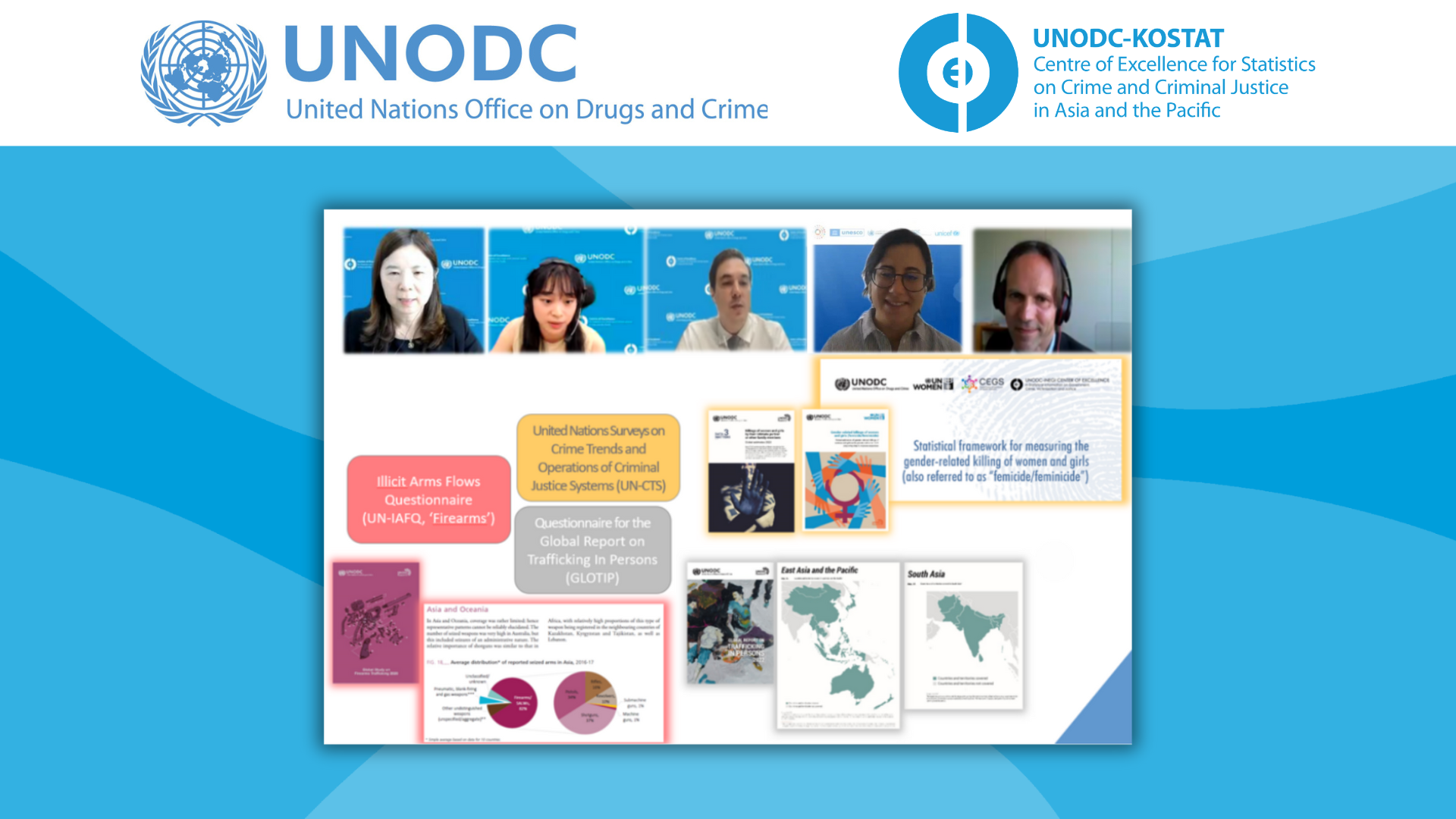
Daejeon (Republic of Korea), Virtual, 27 July 2023 - Annually United Nations Office on Drugs and Crime (UNODC) launches Data Day during which countries are encouraged to gather and submit drug and crime data to the Office. The data collection cycle for the year 2023 was initiated on May 12, 2023, as questionnaires were sent to national focal points and permanent missions in Vienna. These crime and criminal justice data collections offer Member States a centralized opportunity to gather crucial information, enabling the identification of crime patterns and trends for crime prevention, as well as the examination of their national criminal justice system's performance, information flow, and inter-agency collaboration in the crime statistics system. The surveys adhere to standardized definitions as outlined in the International Classification of Crime for Statistical Purposes (ICCS) and play a direct role in collecting data to monitor 10 Sustainable Development Goals (SDG) indicators.
The Centre of Excellence (CoE) led the session of the UNODC Briefing on the 2023 Data Collection Cycle dedicated to Crime and Criminal Justice for Asia and the Pacific. The objective of the session was to provide information to the member states of the regions about the ongoing data collection cycle and clarify the role of national focal points in the cycle, with the final aim of enhancing their responses to three data collection tools:
As a parallel breakout session of the Asia-Pacific briefing on the 2023 data collection cycle, the session began with welcoming remarks by Moderator Jonghee Choi, Coordinator of the CoE, followed by a regional perspective of data collection presented by Jisu Kim, Data Analysis Officer. For each data collection, the UN-CTS was introduced by David Ravaux, Methodology Officer. The session also featured a presentation on GLOTIP by Giulia Serio, Social Affairs Officer of Data, Analytics and Statistics Section, UNODC, and the introduction of UN-IAFQ by Markus Schwabe, Statistician, Data Analytics and Statistics Section, UNODC. Finally, a Question-and-Answer Session addressed participants' questions and comments.
The CoE continuously supports member states to enhance the quality and quantity of responses to the UN-CTS, UN-IAFQ and GLOTiP in the Asia-Pacific region by providing technical assistance on international standardized methodology; the International Classification of Crime for Statistics Purposes (ICCS), Crime Victimization Survey (CVS), and Corruption Survey (CS).
Further information on the CoE can be found here, Twitter @CoE_UNODC and Facebook @UNODC.KOSTAT.CoE.